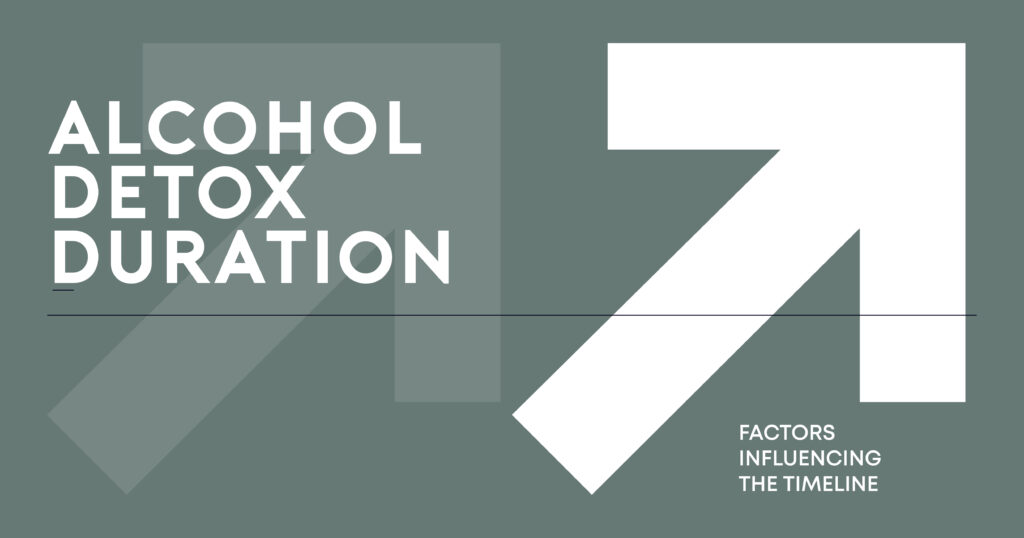Alcohol detox is one of the first and most crucial steps that a person undertakes when they decide to quit drinking after years of heavy or prolonged alcoholism. Nonetheless, the number of questions that most people have is, How long does alcohol detox take? It is not as easy, as the time of alcohol detox differs in every case and depends on a number of personal and medical conditions.
Knowledge of the process, symptoms, and stages of detox can enable the individual to be ready with the process of recovery and to get the appropriate support from professionals like Tennessee Behavioral Health.
Introduction to Alcohol Withdrawal and Detox Timeline
Detoxification is the process of letting the body get rid of the alcohol as the person tries to cope with symptoms of withdrawal in cases of alcohol cessation. Depending on the level of dependence, the onset of alcohol withdrawal in a human being normally starts in a few hours after the final consumption and may take days or even more than a week. It is in this period that the body and the brain try to restore balance, having been exposed to alcohol over a long period of time.
Due to the interference of alcohol with the neurotransmitters and brain chemistry, withdrawal symptoms may lead to physical, psychological, and emotional problems. The reason it is considered a safe way to detox in a hospital setting is that, in some cases, alcohol withdrawal can lead to death, especially when the person goes through severe cases such as the development of seizures or delirium tremens.
According to the National Institute on Alcohol Abuse and Alcoholism (NIAAA), it is necessary to achieve close observation of the people who experience withdrawal so that they can be safe and well-cared for.
Tennessee Behavioral Health
Understanding the Stages of Alcohol Detox
The alcohol detox process usually has a general order of occurrence, but the degree and speed can differ depending on an individual’s health and alcohol consumption history.
- Stage 1 (6–12 hours after last drink). Early withdrawal symptoms set in, like anxiety, headache, nausea, and insomnia.
- Stage 2 (12–48 hours). The symptoms can be aggravated and encompass high blood pressure, increased heart rate, confusion, and some hallucinations.
- Stage 3 (48–72 hours). The third stage, the most severe of them, is during which part of the population has convulsions or delirium tremens (DTs), and this does not allow waiting.
- Stage 4 (after 72 hours). Slow progress starts, but such psychological effects of stress as anxiety or depression might still be there.
Every person’s alcohol detoxification depends on their metabolism, alcohol use history, and support that is accorded to the individual by using medication.
Common Alcohol Detox Symptoms and What to Expect
The anticipation of what is in store can help lessen the fear and anxiety concerning the process. There are many symptoms that one may get during the detox process that may be diverse in nature with respect to dependence.
Different alcohol withdrawal symptoms include:
- Tremors or shaking.
- Sweating and fever.
- Nausea or vomiting.
- Irritability and mood swings.
- Difficulty sleeping.
- Rapid heartbeat.
- Anxiety or panic attacks.
Although the majority of symptoms subside within a number of days, some of the mental effects, such as depression or cravings, may last. In order to relieve symptoms and offer a safe detox procedure, healthcare experts are likely to use drugs and supportive measures to control the pain and ensure that the procedure is safe.

Factors That Influence the Duration of Alcohol Detox
No two detox experiences are the same. The process has a number of determinants that make it take longer and result in more severe symptoms.
| Influencing Factor | Description | Effect on Detox Duration |
| Length of Alcohol Use | The longer someone has been drinking, the more dependent their body becomes. | Prolonged use usually results in longer detox periods. |
| Quantity Consumed | Higher daily alcohol intake increases toxicity and withdrawal severity. | May extend detox duration. |
| Overall Health | Individuals with liver disease or weakened immune systems may detox more slowly. | Health conditions can prolong recovery. |
| Age and Metabolism | Younger people often process toxins faster than older adults. | Older age may slow detox. |
| Co-occurring Disorders | Mental health or substance use issues complicate detox. | Often requires longer and more supervised care. |
| Type of Detox Program | Medical vs. at-home detox impacts duration and safety. | Professional detox may be completed faster with fewer complications. |
Alcohol Detox at Home vs. Inpatient Detox Programs
Among the key decisions made during the recovery process, one should decide whether to use an alcohol detox program at home or an inpatient alcohol detox program. Both options have their merits and demerits, though safety must be the most important factor. This can be because home detox is a very appealing alternative because of its convenience and privacy.
It is dangerous, however, without medical supervision. Such serious withdrawal symptoms as delirium tremens or epileptic seizures might be medical emergencies. Individuals who are detoxing at home should be well-supported socially, well-hydrated, and have immediate access to healthcare in case it is required.
The Medical Detox Process Explained Step-by-Step
Medical detox is a clinically guided procedure of alcohol withdrawal. By so doing, it ensures that patients are secure and assisted at every phase of the detoxification process.
- Assessment and Evaluation. Medical staff determines physical health, psychological health, and drinking history.
- Stabilization. Benzodiazepines, anticonvulsants, and other drugs may be provided to reduce the intensity of withdrawal, preventing seizures.
- Monitoring. Important vitals, hydration, and mental status are monitored 24/7.
- Supportive Care. Nutritional care, rest, and counseling assistance are used to foster recovery and comfort.
- Transition Planning: As soon as patients are stabilized, they are referred to a continuous therapy or rehabilitation program so that they can remain sober.
The safety and tolerability of withdrawal are enhanced by evidence-based professional detox methods. According to the National Institute on Drug Abuse (NIDA), medical detox may assist in the reduction of the risk of complications in alcohol withdrawal.
Managing Complications and Safety Concerns During Detox
The process of quitting alcohol is not only uncomfortable, but also unsafe unless properly done. The human organism is not used to such sudden alcohol withdrawal, and therefore, it might cause severe symptoms such as convulsions and irregular heartbeat. The medical oversight assists in the early warning methods and offers a quick solution. Drugs, intravenous fluids, and supportive treatment minimize the risks and guarantee comfort.
Emotional support is also an important factor. During the detox, anxiety, fear, or guilt may arise, and humane counseling assists people in managing it. With a safe and guided environment such as the one offered by Tennessee Behavioral Health, the journey to sobriety is guaranteed to be safer.
The Role of Supportive Care in Successful Alcohol Withdrawal
Supportive care is the nonmedical part of the detox that is also the key to success. Through this, there is therapy, emotional support, and holistic approaches such as mindfulness or nutrition support. Circumstances also demand attention to the mind as the body starts healing.
In spite of the fact that the effects of withdrawal, which are overwhelmingly significant for the majority, are over in several days, some of the mental impacts, including depression or cravings, could remain. To alleviate the symptoms and provide a safe detox program, medical professionals will most likely resort to medication and other positive influences in order to manage the pain and make the procedure safe.
Tennessee Behavioral Health
Life After Detox: Transitioning Into Ongoing Treatment and Recovery
The initial step of recovery is detox. Once the alcohol detoxification period is over, sufferers require continuous treatment to ensure that they remain sober and start their lives again. Tennessee Behavioral Health offers individualized treatment programs that consist of counseling, group therapy, and relapse prevention programs.
The ongoing work in therapy allows solving the psychological origins of addiction and gives lifelong instruments for coping with stress and temptation. Recovery is not linear – it is a progressive process that entails self-discovery, healing, and determination toward wellness.
Begin Your Detox and Recovery Journey with Tennessee Behavioral Health
If you or your loved one struggles with alcohol dependence, do not wait to get help. Tennessee Behavioral Health has a caring team to provide you with medically supervised detox, full treatment programs, and ongoing services to ensure that you attain long-term recovery. Get the ball rolling now towards a good, healthy life by calling Tennessee Behavioral Health to receive individualized instructions and treatment.

FAQs
How does the alcohol withdrawal timeline vary among different individuals?
The alcohol withdrawal schedule may not suit all people because it varies according to the level of alcohol addiction, the overall health, and the metabolism. Some others may recover within a few days, and others may take a week or more before they recover.
What are the common alcohol detox symptoms one might experience during the stages of alcohol detox?
Alcohol detox is usually accompanied by the common symptoms of tremor, nausea, perspiration, irritability, and anxiety. Some of the worst are seizures or hallucinations, and these require medical attention.
How long does alcohol detox typically take, and what factors influence the alcohol detox duration?
The detox phase of alcohol could last between 3 and 7 days, and it is determined by the age of the patient, their history of alcohol consumption, and their health condition. Medical care provided by professional personnel will help reduce the time spent on recovery and offer greater safety.
What are the pros and cons of alcohol detox at home compared to an inpatient detox program?
Home detoxing is risky, but unsafe because of the unpredictable withdrawal symptoms. Conversely, an inpatient detox program offers 24-hour supervision, medication assistance, and an organized recovery setting.
Tennessee Behavioral Health
What is involved in the medical detox process during alcohol detoxification, and how does it affect the overall alcohol detoxification timeline?
Philosophy The medical detox approach entails assessment, stabilization, and after-assessment in the presence of a medical guard. This is an extremely systematic approach, and it is a means of ensuring safety and could assist in making the whole alcohol detoxification process fruitful and easy.




